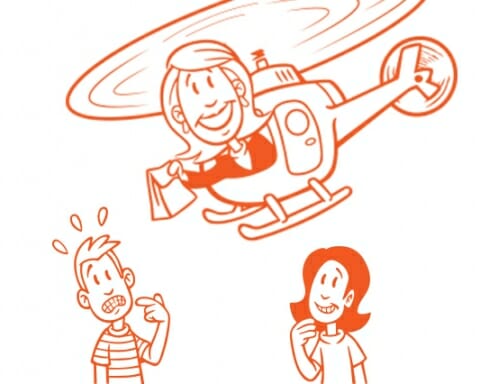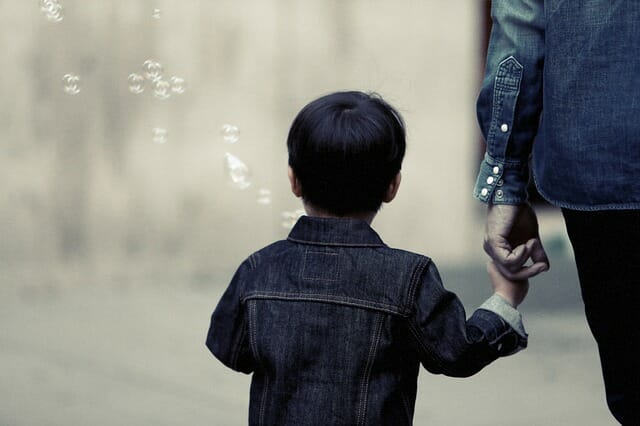In helicopter parenting, the parents continually hover over and around their children, either directly or indirectly, regardless of where they are. Helicopter parents are motivated by love and tend to think that they are merely being loving and protecting.
However, helicopter parenting takes these characteristics to extremes, often without the parents even realizing it. This study spells out all the signs and symptoms of helicopter parenting and describes its negative consequences.
Signs of Helicopter Parenting
It is normal for parents to worry about their children, but worrying too much can lead to helicopter parenting. Helicopter parents find it difficult to let their children play alone, thinking that they will get hurt. They constantly check on their children while they are sleeping and generally will not leave them alone.
Helicopter parents may touch and pat their children all the time just to confirm that they are okay. They do things for their children that children should be doing on their own. For example, a parent may do the child’s homework so that the child does not stress over it.
Helicopter parents may also call their child’s teacher to check on minor issues and to discuss negligible matters. These and similar behaviors could be signs of helicopter parenting.
Solutions to Helicopter Parenting
Of course, parents who love their children do not want them to become immature adults. So, how do parents stop helicopter parenting so that their children learn to be independent? The simplest way to do this, according to some experts, is to imagine the children as adults with no one hovering nearby to protect them.
Also, read on this website
- How Does Bad Parenting Affect a Child?
- Types of Parenting Styles and How to Identify Yours
- What is Helicopter Parenting?
- What is Free-range Parenting?
The parents need to take a few steps back. Perhaps the best advice is to take a deep breath before approaching a child or making a call to the child’s school or day care; reevaluate whether or not there really is an emergency.
Parents should strive to notice what their children can do at home without help and keep away. They should have confidence that their children can play alone. With their teachers’ input, parents should learn what their children can do independently for school.
Parents will build their children’s self-confidence if they allow them to do as much as possible on their own and only step in when necessary. Eventually, parents will quit hovering, maybe without even realizing it.
References
- Schiffrin, Holly H., Miriam Liss, Haley Miles-McLean, Katherine A. Geary, Mindy J. Erchull, and Taryn Tashner. “Helping or Hovering? The Effects of Helicopter Parenting on College Students’ Well-Being.” Journal of Child and Family Studies 23 (2014): 548–557. Retrieved from https://link.springer.com/article
- Ashdown, Brien K., and Amanda N. Faherty. “Excessive Hovering: Helicopter Parenting and Its Consequences.” PsycCRITIQUES 60, no. 42 (2015). Retrieved from https://bit.ly/2Mqedr9


![I, Greg Williams [GFDL (http://www.gnu.org/copyleft/fdl.html) or CC BY-SA 3.0 (https://creativecommons.org/licenses/by-sa/3.0)], from Wikimedia Commons](https://parentingscience.today/wp-content/uploads/2018/05/Helicopter_Parenting_Father-480x384.png)









